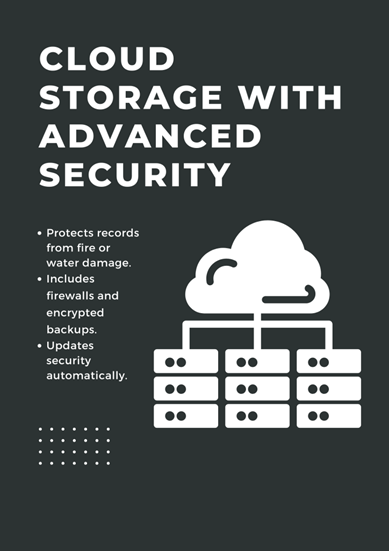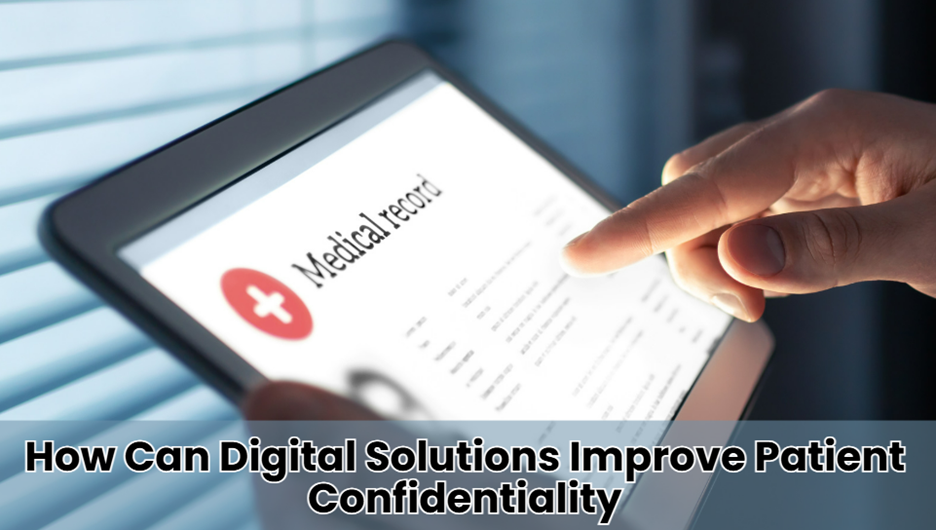Does the medical information of patients enjoy proper protection? The medical records embrace sensitive information which requires protection from public disclosure. People show concern regarding the safety of their data storage.
Does anyone have unauthorized access to view it? Could someone misuse it? Technology advances rapidly in the modern world thus digital solutions function as essential tools to protect medical patient privacy.
Secure Electronic Health Records
Paper documents are difficult to protect from theft and fail to remain secure because they can easily get lost. Secure databases with high-level protection house digital records because they remain safely stored.
The encryption process turns electronic health record data into uninterpretable codes through mathematical algorithms. Authorized personnel needing specific credentials become the only approved entities to view these records.
Healthcare providers implement access limitations systems for patient data management. Almost all users lack permission to see all patient information. Healthcare staff have restricted visibility of medical documents because doctors receive full access while receptionists work with appointment data only. The established authorities affect which users can view information thus minimizing privacy disclosure possibilities.
Encrypted Communication Between Patients and Doctors
Healthcare patients who use emails phone calls and text messages must reveal their sensitive medical information to authorized personnel. Computer systems lacking secure channels can harm patient privacy by revealing their private information.
Encrypted patient communication channels named patient portals and secure messaging apps are available through a practice management solution. The platforms enable safe communication between patients and doctors. This ensures sensitive medical information stays protected from unauthorized access.
The security rules at telemedicine platforms operate stringently. The encrypted network systems used for video consultations protect them from unauthorized monitoring attempts. Patients feel secure when discussing their health matters since their protected conversations are ensured.
Digital Consent Forms for Patient Approval
All treatment procedures together with data-sharing require explicit patient authorization. Electronic consent forms through digital solutions let patients eliminate the need for paper versions. All recorded forms receive secure storage status for later access based on need.
Electronic records guarantee secure storage of digital consent forms which differs from the vulnerability of lost paper documents. Through their online health portals, patients maintain the ability to review these documents at any time to confirm their knowledge about available choices.
Stronger Authentication Measures
Healthcare institutions need to create methods for verifying patient record access only to authorized personnel. Digital solutions enable multi-factor authentication (MFA) to deliver enhanced security for systems. Security demands that users present a combination of fingerprint recognition and single-use mobile codes in addition to password entry.
The additional authentication method creates barriers that protect medical systems from unauthorized hackers. The added authentication mechanisms make it impossible for intruders to access accounts even when passwords are exposed.
Automatic Data Monitoring for Unauthorized Access
Digital systems log both viewing actions and modifications of individual patient records. The system alerts users when somebody attempts unauthorized access to its records. System-generated alerts automatically send information about security incidents with abnormal events to hospital security reaction teams.
These monitoring systems assist investigators when conducting their work. Digital tracking systems reveal specific details regarding both the time and position of data breaches after they occur. The timely response capabilities enable hospitals to take measures that stop data from getting any worse.
Cloud Storage With Advanced Security

Cloud-based systems function as a storage solution for numerous healthcare providers who need to keep patient records. Such systems implement effective security measures to prevent data elimination. Cloud storage technology delivers data protection that prevents loss from standard file imperilments such as fires or water-caused destruction.
Cloud platforms include pre-installed security features that encompass firewalls together with encrypted backup systems. Security patches are automatically applied by these computer systems which ensures protection against new threats.
AI-Powered Threat Detection
Healthcare security heavily depends upon artificial intelligence (AI) technologies that power its operation. AI tools process data access patterns which enable them to detect unauthorized activities. Patient data breaches trigger AI-powered detection tools to alert security staff when a large amount of data is being copied from systems.
Hospital systems receive better protection from cyberattacks through AI-powered tools that detect their vulnerable spots. Healthcare providers who enhance their data protection areas minimize the possibility of data breaches.
Digital Training for Healthcare Staff
Even the best security systems are useless if staff members do not follow proper procedures. Digital solutions include online training programs for healthcare workers. These programs teach them how to handle patient data safely. Interactive modules and real-life scenarios make the training more engaging and effective.
Employees learn to recognize phishing emails, avoid weak passwords, and report security concerns. Regular training helps build a culture of confidentiality, making sure patient information stays protected. Frequent updates ensure staff stays informed about the latest security threats and best practices.
Secure Prescription Management
Prescriptions contain sensitive details about a patient’s condition. Digital prescription systems ensure this data is shared only with authorized pharmacists and doctors. Patients can also use secure apps to receive and manage prescriptions without worrying about privacy leaks.
These systems also help prevent fraud. Digital prescriptions are harder to forge than paper ones. Doctors and pharmacists can track prescriptions electronically, reducing the risk of misuse. Automated alerts can also detect unusual prescription patterns, helping to prevent drug abuse and fraud.
Digital Identification for Patients
Some healthcare facilities use digital IDs to verify patient identities. This can include fingerprint scans, facial recognition, or unique patient numbers. These digital tools prevent mix-ups, ensuring the right patient gets the right treatment.
Patient identity verification also protects against medical identity theft. This occurs when someone pretends to be another patient to receive treatment. Digital IDs make such fraud harder to carry out.
Conclusion
Patient confidentiality is a key concern in healthcare. Digital solutions provide stronger security measures to keep medical data safe. From encrypted records to AI-powered threat detection, these technologies help protect patient privacy.
As technology continues to improve, healthcare providers can ensure that confidential information remains secure, giving patients the peace of mind they deserve.
FAQs
- How do digital solutions help control access to patient records?
Access controls like multi-factor authentication and role-based permissions ensure that only authorized personnel can view or edit patient records.
- Can digital solutions help in detecting unauthorized access to patient data?
Yes, automated monitoring systems track and log every access attempt, alerting administrators to any suspicious activity.
- How do encrypted communications protect patient confidentiality?
Encryption scrambles data during transmission, ensuring that only the intended recipient can decode and access sensitive patient information.











